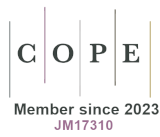Myths as „Collective Experiences” in the German Democratic Republic – exemplified in selected works by Heiner Müller
DOI:
https://doi.org/10.18778/1427-9665.13.09Keywords:
Heiner Müller, myth in the literature, Philoctetes, HoratianAbstract
The writers of the German Democratic Republic often reached for myths to convey forbidden issues in an oblique way and to deceive the censors. In an interview Heiner Müller admits that this was an attempt to raise crucial questions about socialism:
I want neither to write ancient plays today nor to adapt ancient topics.In the early 1960s plays about Stalinism were forbidden. It was necessary to invent such a model to raise really important issues.So that people would recognize them at once.
On the basis of the works Philoctetes and The Horatian the reception of two ancient myths will be followed in plays by Heiner Müller. The German playwright employs an interesting strategy: he adopts myths in varied, condensed forms, however, the plot is set in mythical circumstances.Müller does not make an attempt to modernize his dramas by transferring their content into a new setting of space and time, but he draws parallels between past and present. Müller’s plays are in Norbert Otto Eke’s opinion, both historical and contemporary. Interestingly, according to Brecht’s idea and his „alienation effect” the spectator should not identify with the events on stage, but only follow and analyse them. For this reason, the works by Müller can be qualified as didactic.
References
Chodkowski R. (2009), Filoktet. Wstęp, [w:] Sofokles: Tragedie. Tom I. Ajas, Trachinki, Filoktet, Edyp w Kolonos (tłum. Chodkowski R.), Towarzystwo Naukowe Katolickiego Uniwersytetu Lubelskiego Jana Pawła II, Lublin, s. 259–302.
Google Scholar
Eke N. (1999), Heiner Müller, Philipp Reclam, Stuttgart.
Google Scholar
Emmerich W. (1990), Der vernünftige, der schreckliche Mythos. Heiner Müllers Umgang mit der griechischen Mythologie, [w:] Heiner Müller: Material. Texte und Kommentare, wyd. Hörnigk F., Reclam Verlag, Leipzig, s. 138–156.
Google Scholar
Jabłkowska J. (2014), Antique Dramas by Heiner Müller. Adaptation of myths or a new dramatic aesthetics, [w:] Collectanea Philologica XVII, s. 137–148.
Google Scholar
Moser A. (2014), Utopiekonzept und Geschichtsauffassung im Werk Heiner Müllers, Röhrig Universitätsverlag, St. Ingbert.
Google Scholar
Müller H. (1976), Filoktet (tłum. Jacek St. Buras), [w:] Literatura na Świecie 1/76, s. 74–107.
Google Scholar
Müller H. (1978), Horacjusz (tłum. Jacek St. Buras), [w:] Dialog nr 2, s. 96–102.
Google Scholar
Müller H. (1989), Drei Punkte zu Philoktet, [w:] Heiner Müller: Material. Texte und Kommentare, wyd. Hörnigk F., Reclam Verlag, Leipzig, s. 138–156.
Google Scholar
Müller H. (1999), Krieg ohne Schlacht.Leben in zwei Diktaturen, Kiepenheuer & Witsch, Köln.
Google Scholar
Muskała M. (2000), Tłumacz, ten sprawca zza biurka, [w:] Heiner M. Makbet, hamletmaszyna, anatomia Tytusa, (wyd. Buras J, Jeleń E., Muskała M.) Księgarnia Akademicka, Kraków.
Google Scholar
Sauerland K. (1976), Smutna prawda, [w:] Literatura na Świecie 1/76, s. 108–111.
Google Scholar
Schütte U. (2010), Heiner Müller, Böhlau Verlag, Köln.
Google Scholar
Downloads
Published
How to Cite
Issue
Section
License

This work is licensed under a Creative Commons Attribution-NonCommercial-NoDerivatives 4.0 International License.










